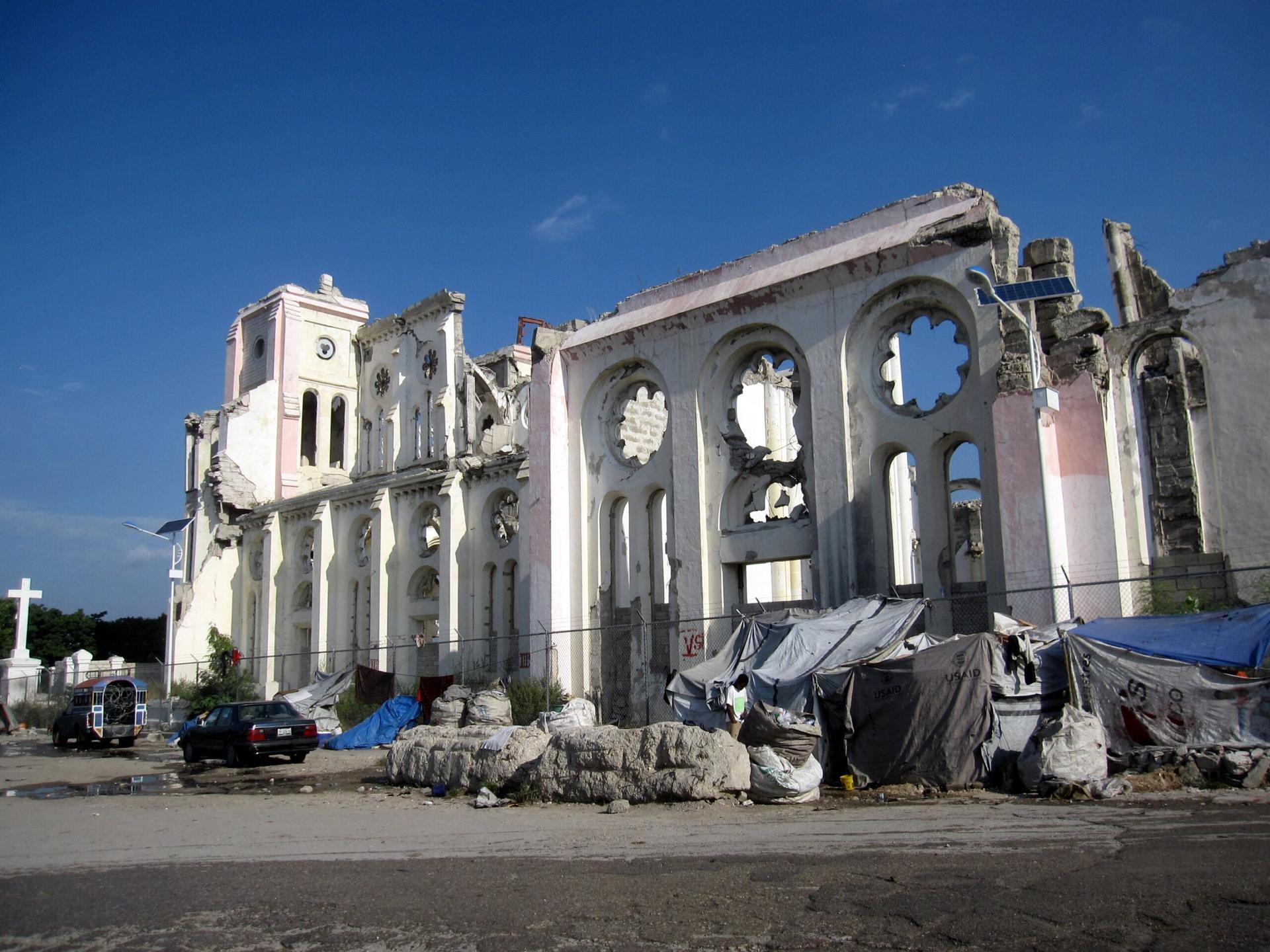LEICESTER, United Kingdom – As Haiti prepares to mark the 15th anniversary of its catastrophic earthquake, Mary’s Meals continues its efforts to make sure children there are able to have healthy food at school.
The magnitude 7 earthquake hit the Caribbean nation on January 12, 2010, killing an estimated 160,000 people and causing billions of dollars in property damage.
The Catholic Cathedral of Our Lady of the Assumption, often called Port-au-Prince Cathedral, was destroyed during the earthquake.
Mary’s Meals is a Scotland-based charity named after Mary, the mother of Jesus. Its founders are Catholic, although it is not an official Catholic organization.
It says 15 years after the earthquake, the key threat Haiti faces is not from nature but from extreme instability caused by lawless gangs.
“Daily shootings and killings dominate life, with entire areas under gang rule, leaving residents powerless to ensure their safety. Schools suffer closures, businesses are paralyzed, and many essential services are inaccessible,” the charity said in a statement.
“The territorial dominance of gangs has disrupted food imports and distribution. Ports are closed, roads are blocked, and alternative transport methods like boats or helicopters are both costly and risky,” the statement continues.
Mary’s Meals says precious locally grown produce rots because farmers can’t access markets, leaving both producers and consumers struggling to afford food. Meanwhile, the price of basic items such as rice has soared, making hunger a bigger threat to a population already devastated by unemployment and the frequent destruction of homes, which often contain families’ life savings.
“Food is the biggest incentive. To prevent children from joining a gang, we need to focus on the poverty. It is the poverty that is killing them,” said Emmline Toussaint, one of the coordinators of Mary’s Meals’ school feeding program in Haiti.
“They are living a nightmare. Mary’s Meals is needed now more than ever. We are doing our best to make sure that the children are eating every day because if we don’t have the school feeding program, the children won’t have anything,” she added.
Relief agencies working in the country face immense logistical challenges.
Mary’s Meals says storing food is risky because of looting, while importing food is costly and dangerous, with deliveries being vulnerable to hijacking.
The charity warns that despite efforts to provide aid, the lives and livelihoods of ordinary Haitians are still endangered by extreme food insecurity, escalating violence and a failed economy.
“It is like the children are in jail, they don’t go out. In December, which traditionally is a time for Haitians to be out celebrating, everybody stayed home, the children would not go out because they’re afraid of what might happen,” said Chantrelle, who has an 11-year-old son in 8th grade and works as a shopkeeper in an area mostly controlled by gangs.
Mary’s Meals is currently on the ground in 500 Haitian places of education feeding 175,000 children every school day with support from local volunteers.
Myrlande is a cook at Verena II Primary School in Haiti.
“When there are no meals at school, the children don’t come and when they have meals, they always come,” she said.
“This means they don’t have time to be outside on the streets, and to be tempted by what’s happening there. So, coming to school and having the food is the best way to keep them in education and out of the gangs,” she said.
Toussaint told Crux that food is the “biggest incentive.”
“Recently, a priest who lives in a gang area was attacked by one of the gang members. He gave them 50 gourds so they could buy food. 50 gourd is less than $0.50. My reaction was that if that young boy received a Mary’s Meal maybe he wouldn’t do it. They only have the gun so they can eat. They don’t have food and then the poverty makes it worse,” she said.
“When they come to school, they know that they have that food waiting for them. It’s more important than ever for those children to have that food every day,” Toussaint said.
However, she also doesn’t want people to see the people of Haiti as simple victims.
“We always like to laugh and to make a joke, even in the worst situations. The other day I saw a message in a group chat, and it said when it’s raining, you hear the sound of the rain on the roof, right? Well, please, if you hear that here, it’s not rain, it’s shooting, so please do not go out to collect the rainwater. It’s funny, but it’s still showing our reality. If they’re shooting that much that you think it is raining outside, but it’s not rain, it’s raining shootings, you know,” Toussaint told Crux.
“I tell this to show how Haitian try to cope with the situation, and I think that’s what keeps us alive, it’s what keeps us here until today. We accept the minimum, the bare minimum. ‘OK, we can go out today, then we are happy. Finally, I’m out after two or three weeks inside.’ We don’t ask for much,” she continued.
“We have that in, I don’t know, it’s in our genes, to easily cope with the situation and try to find a way just to move on,” Toussaint said.
She said Haitians are “resilient.”
“And maybe that’s why we’re here right now. If we were more proactive, if we were more aggressive, maybe we wouldn’t have what we have now, we would have stopped it at the beginning. But we just keep having hope against all hope,” she said.
“That’s the way we are. We just hope things are getting better. And we pray a lot. That’s one of the things also I have to say, we pray a lot, and I think if we are still here it’s because of our prayers,” Toussaint told Crux.














